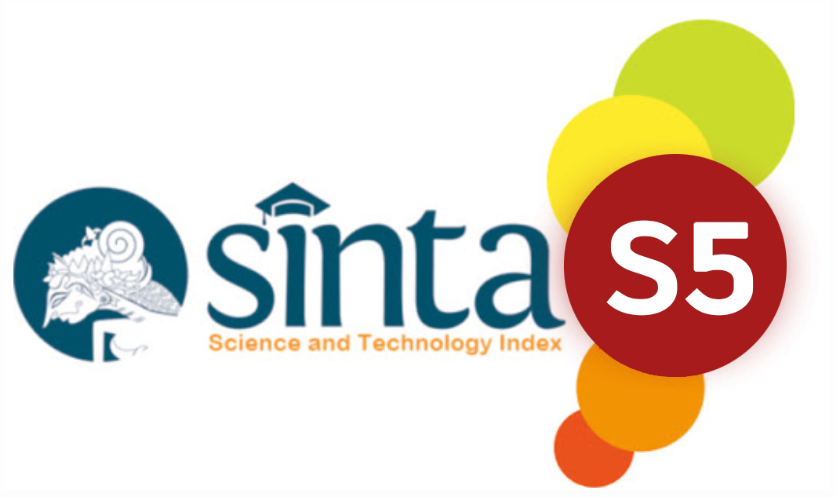Depression and Type 2 Diabetes: Dissecting the Causal Mechanisms
DOI:
https://doi.org/10.32734/sumej.v7i2.16112Keywords:
depression, diabetes, pituitary, psychological, NeuroendocrineAbstract
Background: Depression and Type 2 Diabetes (T2D) are two prevalent and debilitating chronic conditions that often coexist and exhibit a bidirectional relationship. Objective: This aims was to dissect the causal mechanisms underlying the association between depression and T2D, shedding light on the complex interplay between these two disorders. Methods: This was review paper that will explore about epidemiological evidence that found association between depression and an increased risk of developing T2D, as well as a reciprocal relationship where T2D serves as a risk factor for depression onset. Results: Various biological, psychological, and behavioral mechanisms have been proposed to underlie this bidirectional relationship. Depression is thought to contribute to the development of T2D through dysregulation of neuroendocrine pathways, increased inflammation, alterations in lifestyle behaviors, and poor treatment adherence. Conversely, T2D may exacerbate or precipitate depression through mechanisms involving insulin resistance, hyperglycemia-induced neuronal damage, inflammation, and the impact of chronic illness on psychological well-being. Conclusion: Understanding the causal mechanisms underlying the depression-T2D relationship is crucial for informing clinical practice, public health strategies, and the development of personalized interventions aimed at mitigating the burden of these interconnected disorders.
Downloads
References
Prabhakar PK, Singh K, Kabra D, Gupta J. Natural SIRT1 modifiers as promising therapeutic agents for improving diabetic wound healing. Phytomedicine. 2020;76:153252.
Prabhakar PK, Nath D, Singh S, Mittal A, Baghel DS. Formulation and evaluation of polyherbal anti-acne combination by using in-vitro model. Biointerface Res Appl Chem. 2020;10(1):4747-51.
Bergmans RS, Rapp A, Kelly KM, Weiss D, Mezuk B. Understanding the relationship between type 2 diabetes and depression: lessons from genetically informative study designs. Diabet Med. 2021;38(2):e14399.
Zanoveli JM, de Morais H, da Silva Dias IC, Schreiber AK, de Souza CP, da Cunha JM. Depression associated with diabetes: from pathophysiology to treatment. Curr Diab Rev. 2016;12(3):165-78.
Katon W, Maj M, Sartorius N, editors. Depression and diabetes. John Wiley & Sons; 2011.
Holt RI, De Groot M, Lucki I, Hunter CM, Sartorius N, Golden SH. NIDDK international conference report on diabetes and depression: current understanding and future directions. Diabetes Care. 2014;37(8):2067-77.
Roy T, Lloyd CE. Epidemiology of depression and diabetes: a systematic review. J Affect Disord. 2012;142:S8-21.
Ismail K, Barthel A, Bornstein SR, Licinio J, editors. Depression and type 2 diabetes. Oxford University Press; 2018.
Tabák AG, Akbaraly TN, Batty GD, Kivimäki M. Depression and type 2 diabetes: a causal association. Lancet Diabetes Endocrinol. 2014;2(3):236-45.
Tsigos C, Chrousos GP. Hypothalamic–pituitary–adrenal axis, neuroendocrine factors and stress. J Psychosom Res. 2002;53(4):865-71.
Chen PC, Chan YT, Chen HF, Ko MC, Li CY. Population-based cohort analyses of the bidirectional relationship between type 2 diabetes and depression. Diabetes Care. 2013;36(2):376-82.
Renn BN, Feliciano L, Segal DL. The bidirectional relationship of depression and diabetes: a systematic review. Clin Psychol Rev. 2011;31(8):1239-46.
Tabák AG, Akbaraly TN, Batty GD, Kivimäki M. Depression and type 2 diabetes: a causal association. Lancet Diabetes Endocrinol. 2014;2(3):236-45.
Liu D, McIntyre RS, Li R, Yang M, Xue Y, Cao B. Genetic association between major depressive disorder and type 2 diabetes mellitus: shared pathways and protein networks. Prog Neuropsychopharmacol Biol Psychiatry. 2021;111:110339.
Stuart MJ, Baune BT. Depression and type 2 diabetes: inflammatory mechanisms of a psychoneuroendocrine co-morbidity. Neurosci Biobehav Rev. 2012;36(1):658-76.
Reus GZ, Dos Santos MAB, Strassi AP, Abelaira HM, Ceretta LB, Quevedo J. Pathophysiological mechanisms involved in the relationship between diabetes and major depressive disorder. Life Sci. 2017;183:78-82.
Vassilopoulos A, Nicholl M, Wolf RM, Slifer KJ, Cirincione L. Discrepancies in assessing symptoms of depression in adolescents with diabetes using the patient health questionnaire and semi-structured interviews. Diabetes Spectr. 2020;33(4):339-46.
Kretschmar JM, Flannery DJ, Tossone K, Gearhart MC, Prevention V. The Cuyahoga County Defending Childhood Initiative: An outcome evaluation. Begun Center for Violence Prevention Research and Education; 2016. Available from: https://case.edu/socialwork/begun/sites/case.edu.begun/files/2018-09/DCI-2016-Evaluation.pdf.
Downloads
Published
How to Cite
Issue
Section
License
Copyright (c) 2024 Sumatera Medical Journal

This work is licensed under a Creative Commons Attribution-ShareAlike 4.0 International License.
The Authors submitting a manuscript do so on the understanding that if accepted for publication, copyright of the article shall be assigned to Sumatera Medical Journal (SUMEJ) and Faculty of Medicine as well as TALENTA Publisher Universitas Sumatera Utara as publisher of the journal.
Copyright encompasses exclusive rights to reproduce and deliver the article in all form and media. The reproduction of any part of this journal, its storage in databases and its transmission by any form or media, will be allowed only with a written permission from Sumatera Medical Journal (SUMEJ).
The Copyright Transfer Form can be downloaded here.
The copyright form should be signed originally and sent to the Editorial Office in the form of original mail or scanned document.











